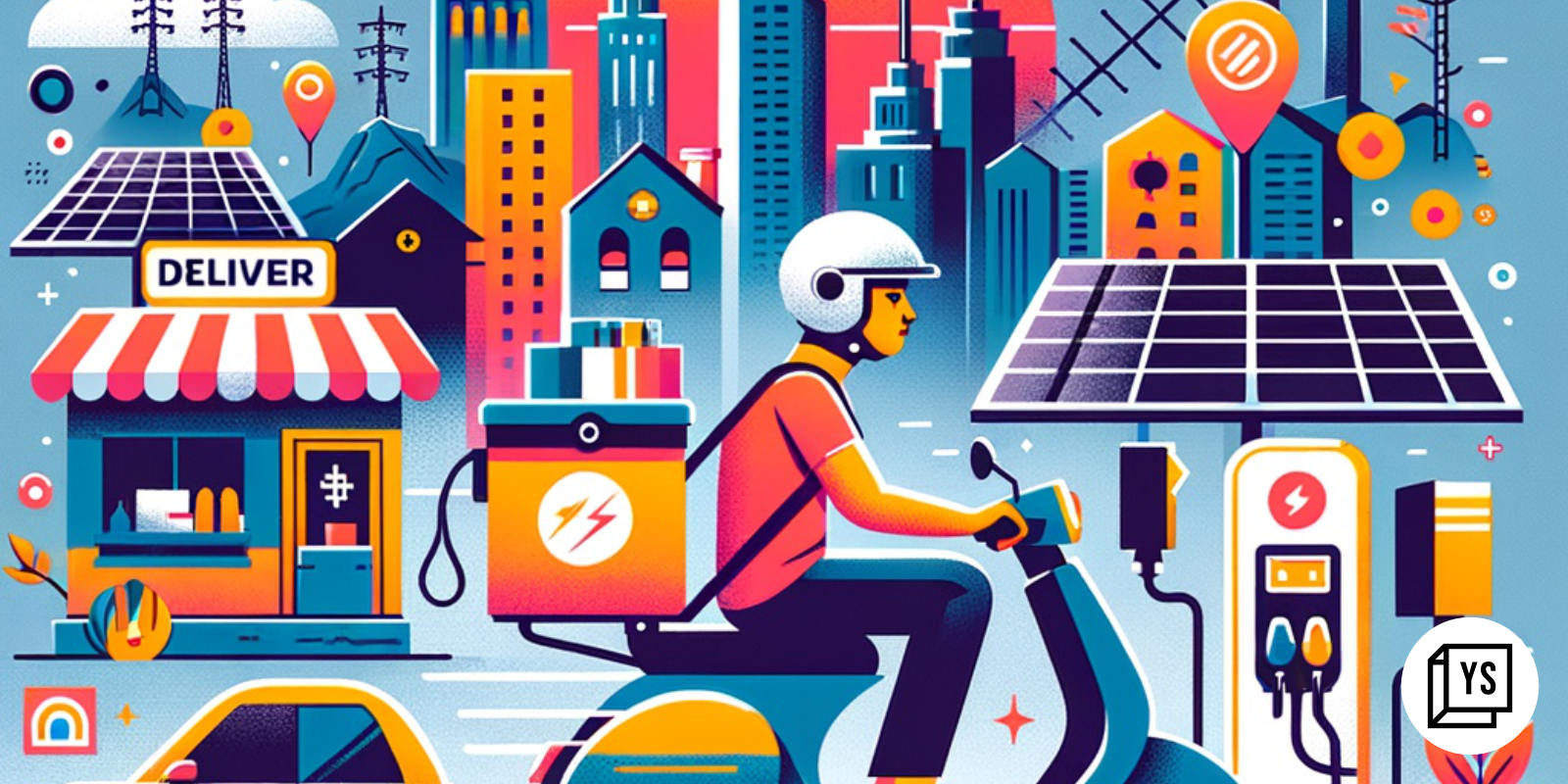
In the ever-evolving work landscape, the gig economy has become an undeniable force, transcending borders and reshaping employment dynamics.
According to Niti Aayog, a staggering 7.7 million individuals, contributing to 1.5% of India’s workforce are currently part of this transformative wave—a number projected to surge by over 200% by 2030.
This exponential rise is attributed to the allure of flexibility, cost-effectiveness, independence, and diverse opportunities. Yet, amidst this surge, a critical juncture emerges the gig economy’s pivot towards sustainable mobility. One of the critical roadblocks towards sustainable mobility could be the lack of easy funds availability. However, multiple platforms are already working closely with gig workers in this area.
Gig economy’s growing impact on sustainable mobility
The gig economy has created numerous positive impacts, especially in the sustainable mobility sector. It is vividly reflected in the streets of India, where an influx of app-based ride-sharing and delivery services have become prevalent.
It is estimated that the transportation and mobility sector contributes to around 12% of total emissions in the country, and hence, the adoption of sustainable measures on a massive scale helps in addressing a critical challenge.
As cost-effectiveness is one of the critical virtues of the gig economy, it could act as a catalyst to promote sustainable mobility. This transition is not just environmentally critical, but is also economically viable for workers, who could benefit from lower operating costs compared to traditional fuel-based vehicles. As per estimates, recurring costs of EVs for gig workers are significantly lower than ICE alternatives.

Innovative solutions for gig workers’ mobility
One of the critical challenges for gig workers is the lack of disposable funds as they do not have periodic inflows, and personal financial management is quite different from salaried employees. To motivate the gig workers to adopt sustainable mobility, we have to ensure their financial stability with viable options and schemes to help them not just adopt Electric Vehicles (EVs) but also meet their urgent financial needs.
From the stage of providing small loans to gig workers for buying EVs or giving them scooters on affordable rental models which eliminates the upfront cost for them and later the availability of small advances (which could act as advance salaries).
Additionally, there are many startups with robust charging infrastructure like battery swapping and innovative battery packs to ensure peace of mind on the road to provide charging on the go and quick battery swap. This creates a wholesome assurance in their mind on adopting the EVs.
Companies are transforming urban mobility with their fleet of electric bikes, which gig workers use extensively, reducing reliance on traditional fuel. The collaboration between food delivery companies and two-wheeler EV enterprises is also critical. This initiative not only serves as a model for emissions reduction but also lowers the cost per delivery, showcasing a successful integration of sustainability and efficiency.
What do EVs bring for gig-workers for sustainable mobility
Sustainable mobility has huge environmental benefits; it also carries the promise of economic upliftment for the gig workers who are the backbone of this vibrant economy. In India, where cost-efficiency is paramount, the move towards EVs and other sustainable transportation options is proving to be both a green and a financially savvy choice for gig workers.
The cost per kilometre for an electric scooter is significantly less than that for a petrol-powered counterpart, primarily due to lower fuel and maintenance costs, providing few swaps free daily/monthly also gives a boost to confidence for them, ending up saving them a few more bucks in their savings. This cost-effectiveness is vital for gig workers whose earnings are directly impacted by the operational expenses of their vehicles. EVs produce zero direct emissions, which means that every kilometre travelled by an electric scooter or a bike rather than a gasoline-powered vehicle effectively reduces the carbon footprint.
Moreover, as the national grid becomes increasingly fed by renewable energy, the environmental impact of EVs will continue to diminish.
This synergy between economic and environmental objectives is vital for India’s gig workers and sustainable development goals. The reduced environmental impact also translates to public health benefits, potentially lowering healthcare costs associated with pollution-induced ailments over time.
Collaboration and partnership for change
As underlined before, there are multiple examples where partnerships and collaborations have worked for both economic and environmental benefits. However, there is even greater scope for public-private synergies as there are schemes by the central and state governments that offer subsidies and incentives for electric vehicles, encouraging their adoption among gig workers.
Additionally, ecosystem-wide partnerships are forming to tackle the broader challenges of sustainability. For instance, collaborations between financial institutions, vehicle manufacturers, and gig platforms make it easier for workers to finance and purchase EVs. Non-profits and industry associations are also joining the fray, offering training and support to workers transitioning to these new technologies.
Empowering gig workers for a sustainable future
Empowering India’s gig workers for a sustainable future hinges on enhancing access to green technologies and fostering education about sustainable practices. Gig platforms can incentivise this shift by integrating sustainability into their operations, rewarding eco-friendly practices, and fostering a culture that values environmental stewardship. Through a collective approach combining incentives, training, policy support, and community engagement, gig workers can lead the charge towards a greener economy while securing their livelihoods.
Summing up
The pivot towards sustainable mobility within India’s gig economy is poised to be a significant leap forward, both environmentally and economically. Central to this shift is the empowerment of gig workers through better access to green technologies bolstered by educational and policy support. At the same time, the anchor for such empowerment is the ease of access to funding.
Affordable financial solutions and governmental incentives are imperative to equip gig workers with the necessary tools for this green transition. Collaborative efforts among financial institutions, government bodies, and gig platforms are crucial to ensure these workers can invest in eco-friendly resources confidently.
(Akash Gupta is the Co-founder & CEO of Zypp Electric)
Edited by Megha Reddy
(Disclaimer: The views and opinions expressed in this article are those of the author and do not necessarily reflect the views of YourStory.)










